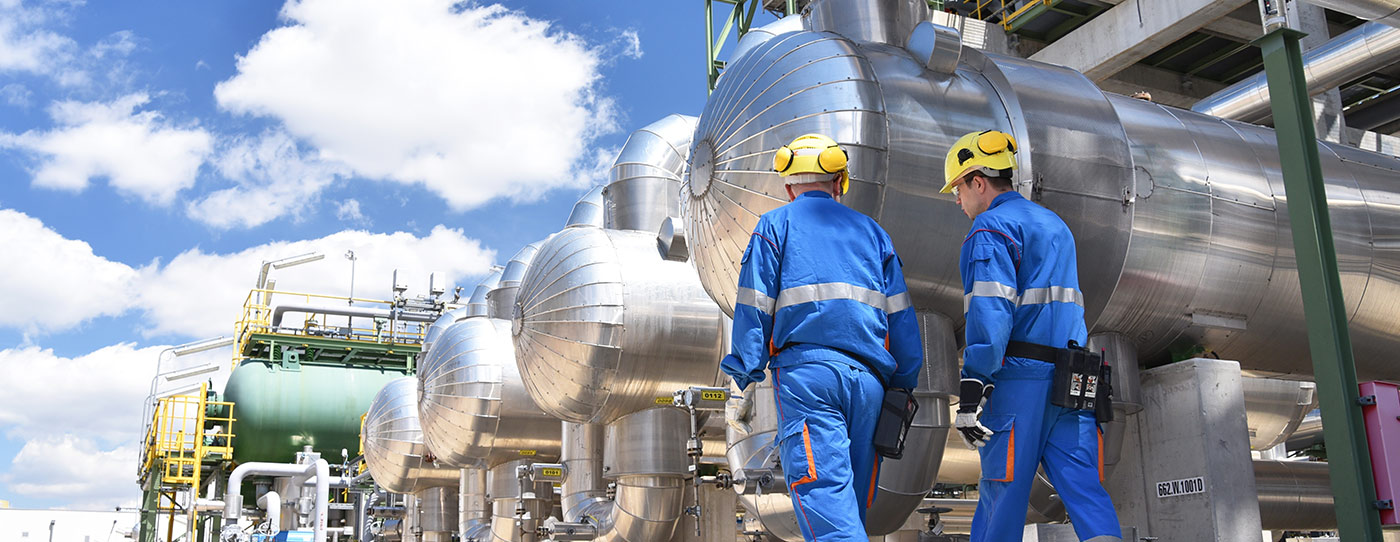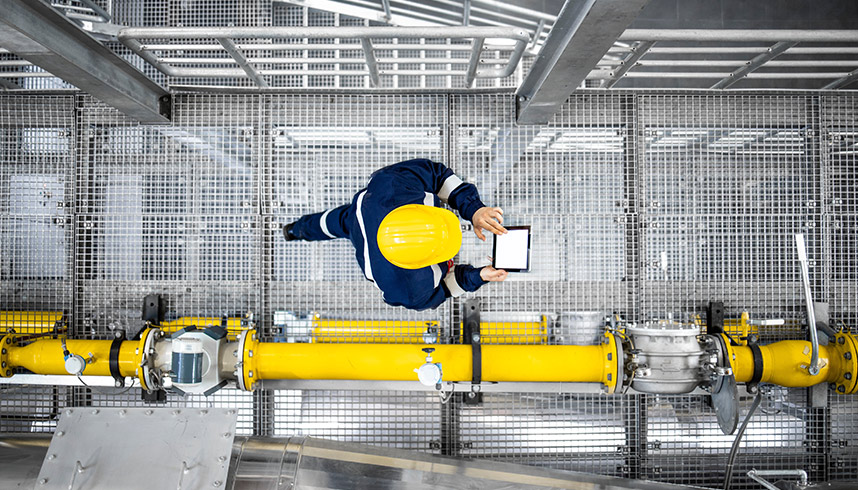
What is it Like to Work in the Petrochemical Industry?
Crude oil, which is used for a large part of our energy and our products, is refined in refineries. The processing of crude petroleum into usable forms requires the professional handling of various processes. In the refineries, the crude oil is converted into products that are used as raw materials in the petrochemical industry, including naphtha and liquefied petroleum gas as well as fuel-oriented products. But what is it like to work in the petrochemical industry? What tasks are required of petrochemical employees and what skills are needed? Let us get to the bottom of the answers to these questions together.
What is the petrochemical sector doing?
The petrochemical industry is a branch of industry in which the raw materials obtained from crude oil and natural gas are subjected to chemical processes in which they are broken down into components and various chemical products are manufactured. It supplies basic raw materials for energy production, plastics manufacturing, chemical substances, the pharmaceutical industry and many other industries.
Crude oil and natural gas are refined in petrochemical plants through chemical and physical processes, whereby their components are separated and new chemical structures are created. As a result, petrochemical products such as polymers, plastics, resins, chemical fertilizers, detergents, paints, varnishes, medicines, synthetic fibers and much more are manufactured.
Who works in the petrochemical industry?
The petrochemical sector is an integral part of modern industry. Many products that serve as inputs for the industry come from this sector. However, due to the chemical processes used in the manufacture of the products, particular attention must be paid to environmental safety and health protection in the workplace. Therefore, the input of engineering, chemistry, environmental science and occupational health and safety experts is crucial in the petrochemical industry. Here you will find the descriptions of the required roles and competencies:
Petrochemical engineer: Petrochemical engineers are professionals who design, optimize, operate and supervise chemical processes in petroleum refineries and chemical plants.
Tasks may include:
- Implementation and optimization of chemical processes, their control and management
- Planning the selection and maintenance of equipment
- Defining and improving processes in the areas of environment, health and safety at work
Qualifications required:
- Bachelor's degree in chemistry, chemical engineering or a related field
- Knowledge of chemical processes and design skills
- Problem solving and analytical thinking skills
- Communication and teamwork skills
Occupational Health and Safety (OHS) Specialist: OHS specialists deal with issues of employee health, occupational safety and maintaining the company's good reputation for safety.
Tasks may include:
- Developing and implementing OHS policies for petrochemical business activities in accordance with national laws, international standards, SOCAR's binding contracts, SOCAR's OHS policy, OHS management system (OHSAS 18001/45001) and the OHS and environmental management system SAFE (SOCAR Efficiency Targets).
- Spreading a compatible OHS culture for all employees in accordance with SOCAR's objectives
- Participating in the risk assessment and implementation of health and safety measures, making recommendations to employers on health and safety measures and monitoring their implementation
- Coordinating the regular meetings of the Occupational Health and Safety Committee, providing the secretariat, liaising with committee members and monitoring the implementation of decisions
- Planning and conducting OHS training for employees in accordance with the relevant legislation
- Supporting efforts to prevent accidents, fires or explosions in the workplace, providing evidence, documents, incident statements and photographs, conducting accident investigations in the workplace, investigating the causes of occupational accidents and diseases and taking measures to prevent their recurrence
Required qualifications:
- Bachelor's or Master's degree in Occupational Health and Safety or a related field (degree from faculties such as Chemistry, Mechanical Engineering etc. and Master's degree in Occupational Health and Safety)
- Knowledge of occupational health and safety laws and regulations
- Communication and teaching skills
- Risk assessment and post-incident analysis skills
Operator: Operators are people who monitor and control chemical and physical processes in plants.
The tasks may include:
- Monitoring and control of production processes
- Maintenance and repair of equipment
- Intervening in emergency situations
Skills required:
- Technical training or vocational school education
- Knowledge of the operation of plant equipment
- Sense of responsibility and solution-oriented way of thinking
- Skills in dealing with emergencies
Engineer for process safety: Process safety engineers are professionals who specialize in the management of safety and risks associated with processes in chemical plants.
Tasks may include:
- Preventing major industrial accidents, reducing maintenance and operating costs in the medium and long term and establishing a robust process safety management system that ensures safe, healthy, efficient and profitable operations
- Ensure the integrity and management of operations and processes involving hazardous chemicals using effective design, engineering, maintenance and operational principles
- Collaborate with engineering, operations, project teams and management to ensure safe operations
Required qualifications:
- Chemical engineering (or environmental engineering, mechanical engineering)
- Mastery of process safety regulations
- Analytical thinking and problem solving skills
- Communication and teamwork skills

Our energy is always high
At SOCAR Türkiye, we know that the most important resource in the world is people - renewable yet irreplaceable. We work with passionate, agile, inclusive, collaborative, responsible and knowledgeable colleagues.
We focus on ensuring our colleagues feel good within our working environment and inclusive culture. By supporting sports, indoor and outdoor exercises, we encourage our employees to lead a more active life. Moreover, we endorse healthy eating practices and activities that create awareness.
We approach our colleagues with our principles of equality, inclusivity, and diversity. We work towards providing an environment where they can openly express their ideas, fostering the most participatory work atmosphere possible.
We initiated our 'Energy is Diversity' project, acknowledging that our differences are our greatest wealth. We respect the diversity of all our employees, believing that each individual's color, preference, thoughts, talents, and beliefs will add value to our institution.
We firmly believe that societal progress and advancement in professional life are only possible through women's empowerment. Within this scope, we adhere to the United Nations Women's Empowerment Principles (WEPs) in our relationships with our employees.
To increase female employment in our sector and break prejudices, we are developing various awareness projects. As part of this effort, we initiated our Female Intern Program with students from the Chemistry Department of Ege University Aliağa Vocational School. We aim to provide employment opportunities to graduating students and increase the number of female employees in our production fields. Additionally, through our "Women Energy" program, we aim to contribute to equal representation in work and management roles for young women. In a year-long training program, we offer training on “seeing the big picture, gender equality, agility, scrum, presentation techniques energy and oil market, quality, kaizen” to participating women to enhance their personal development.
We work for brighter tomorrows with today's energy.